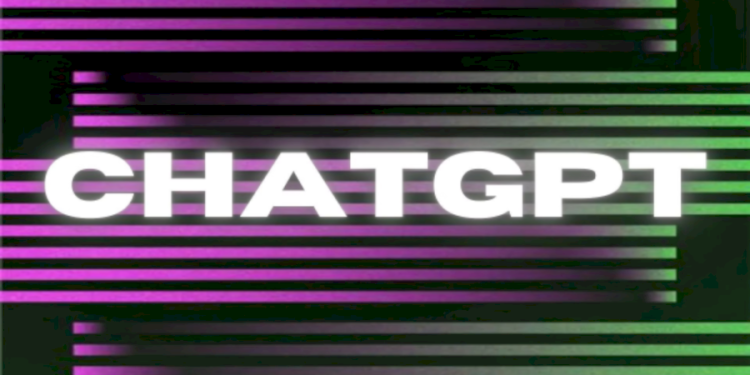Microsoft is placing itself at the vanguard of what some regard as the next wave of technical innovation as the breakthrough success of OpenAI’s ChatGPT sparks a tsunami of excitement about artificial intelligence.
Making money off of this unique and still-imperfect technology is Microsoft’s and other corporations’ task.
The software business announced last week that it was investing additional billions of dollars in OpenAI. The firm is in the spotlight because public and IT industry leaders are fascinated by its chatbot, which can quickly write book reports, produce poetry, and respond to challenging inquiries.
In an effort to hasten the uptake of the technology, Microsoft offered to let any business to apply to utilise it through its Azure cloud-computing platform.
“AI is here to stay, and Microsoft is enabling it,” “On a call with analysts last week, CEO Satya Nadella stated.
The majority of my contacts with generative AI—so named because it can produce original works based on regular language prompts—have been amusing. Since its November release, ChatGPT has attracted millions of users. The image-generating Dall-E 2, another viral sensation from OpenAI, has swamped the internet with user-generated images.
ChatGPT is a disruptive company that is still being established. It has a lot of issues, according to specialists in AI. They claim that ChatGPT occasionally generates responses that contain made-up facts and is slow and expensive to run.
Even after OpenAI produces new versions of GPT, according to Gary Marcus, a co-founder of the machine-learning startup Geometric Intelligence, the issues with erroneous data will persist.
What can you do with these dishonest systems if this particular technology won’t fix those issues?” Marcus enquired.
A request for response from OpenAI was not answered. Sam Altman, the company’s CEO, has stated that ChatGPT is a flawed technology but that it will advance. It’s a mistake to be counting on it for anything significant right now, he stated in a tweet from last month. It’s a sign of things to come, but robustness and sincerity still need a lot more work.”
Microsoft chose not to respond to inquiries regarding the technology. According to Mr. Nadella, ChatGPT’s issues can be resolved. “This is not unique to AI, “He made this statement during a Wall Street Journal panel discussion this month at the Davos 2023 World Economic Forum meeting. “It holds true for any other class of software available today.”
Microsoft unveiled GitHub Copilot, a solution for its GitHub code-collaboration platform, last year. To assist programmers in creating and fixing computer code, it leverages OpenAI technologies. Microsoft believes that Copilot generates 40% of the code in files when it is enabled. Many programmers claim that it has developed into a priceless resource.
According to several AI users, it is a perfect illustration of how this kind of AI works best when combined with experts for certain jobs. They claim that the most current technological developments demonstrate how any lingering issues can be quickly resolved.
“The velocity of change is accelerating at a rate I’ve never seen before, “according to Ben Firshman, co-founder of the AI infrastructure start-up Replicate.
The technology has been hailed by Mr. Nadella as the upcoming disruptive development in the tech sector. He mentions incorporating OpenAI ideas into all of Microsoft’s products. The business has already incorporated OpenAI’s technology into Microsoft Designer and its Bing search engine.
According to some analysts, AI-driven searches may someday enable Microsoft’s Bing search engine to overtake Alphabet Inc.’s Google, which currently holds a 90% market share.
“We’re looking at a different business if it makes Microsoft a competitive search engine, “said RBC Capital Markets analyst Rishi Jaluria.
Although Google was a pioneer of certain generative AI, the public hasn’t had as much access to its tools. It is now attempting to catch up.
It’s possible that Microsoft’s Azure cloud computing division may reap the most immediate benefits. As more businesses adopt generative AI, Microsoft can position Azure as the tool that is most effective for the task.
The company’s cloud “has become the location for everybody and anybody who thinks about AI,” Mr. Nadella said in Davos, adding that Azure “is going to actually commercialise all of this for Microsoft.”
Salesforce Inc. and Meta Platforms Inc. are creating AI technologies. On Microsoft’s cloud, smaller businesses are experimenting with OpenAI’s technologies to develop goods and services. Microsoft reported that since the technology was recently made available for wider use, 200 customers had signed up to use OpenAI’s features.
Early adopters included Yoodli, a Seattle-based manufacturer of speech-coaching software. It analyses a speaker’s utterances to see if they veer off topic using GPT-3, a predecessor of ChatGPT.
The addition of OpenAI’s generative AI technology to Yoodli’s own programmes, according to CEO Varun Puri, made its service more robust and sped up the development of new features.
“Our concept has always been a speech coach with AI, “added he. “We intended to accomplish it mostly [using our own data collection]. However, generative AI has 100 times that.”
Startups have been utilising the technology ever since OpenAI launched GPT-3 in a limited capacity in 2020. After using it, founders have reported that it can be both helpful and troublesome.
Some people are concerned about technological faults like “hallucinations, “where it confidently produces misleading results.
As a result, the technology is now seen as more of an optional extra than a fundamental offering. AI-enabled features are frequently marketed as professional assistants.
Lexion, a startup, leverages GPT-3 to assist clients in creating and editing legal documents. The tool is best used to supplement an attorney rather than to replace one, according to the company’s founders. Contractual language generated by the software occasionally contains errors, which requires cross-checking.
“Neither why it created an output nor how it produced an output are well understood by us, “explained CEO of Lexion Gaurav Oberoi. The issue with hallucinations is this.”
It is best defined as doing the duties of a legal intern because of the limits of the technology, he said.









